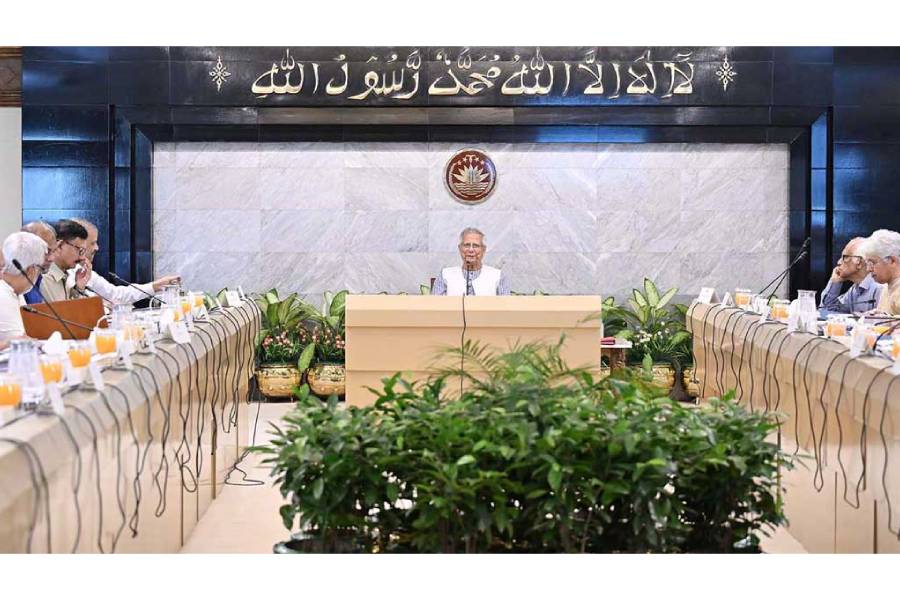Advisory Council approves draft amendment to RPO
Candidates must contest under own party symbol

Published :
Updated :

The interim government’s Advisory Council on Thursday, approved a draft amendment to the Representation of the People Order (RPO), introducing a provision that candidates, even if part of an electoral alliance, must contest the national elections under their respective party symbols.
The approved draft also expands the definition of “law enforcement agencies” to include the army, navy, and air force. As a result, members of the armed forces will now be able to perform election duties at polling stations, similar to the police.
No separate order will be required to deploy the armed forces for election duties.
The approval came at a meeting of the Advisory Council chaired by Chief Adviser Professor Muhammad Yunus, at his office in the city.
Later, at a press briefing at the Foreign Service Academy, Law Adviser Professor Asif Nazrul and Chief Adviser’s Press Secretary Shafiqul Alam briefed the media on the key decisions.
Explaining the major features of the amended RPO, Law Adviser Professor Asif Nazrul said, “If there is an electoral alliance, candidates belonging to that alliance must still contest under their own party symbols.”
He added that the definition of law enforcement agencies now includes the army, navy, and air force.
All provisions related to the use of electronic voting machines (EVMs) have been removed, and individuals who are fugitives in criminal cases will not be eligible to contest elections.
The law adviser also said that all candidates will be required to submit an affidavit disclosing their income and assets—both domestic and overseas sources—and the information will be made publicly available online.
“The Chief Adviser has directed that these disclosures be published online,” he noted.
In the proposed amendment, the security deposit for parliamentary candidates has been raised from Tk 20,000 to Tk 50,000. The district election office will determine the local returning officer for each district.
Another significant reform is the reintroduction of the “No Vote” option. Under the new provision, in any constituency where there is only one candidate, voters will have the right to cast a “No” vote.
Additionally, the Election Commission will have the authority to suspend polling across an entire constituency if irregularities are detected.
The reforms, which aim to ensure greater transparency and accountability in Bangladesh’s electoral process, mark a significant step toward restoring public confidence in upcoming national elections under the interim government.


 For all latest news, follow The Financial Express Google News channel.
For all latest news, follow The Financial Express Google News channel.